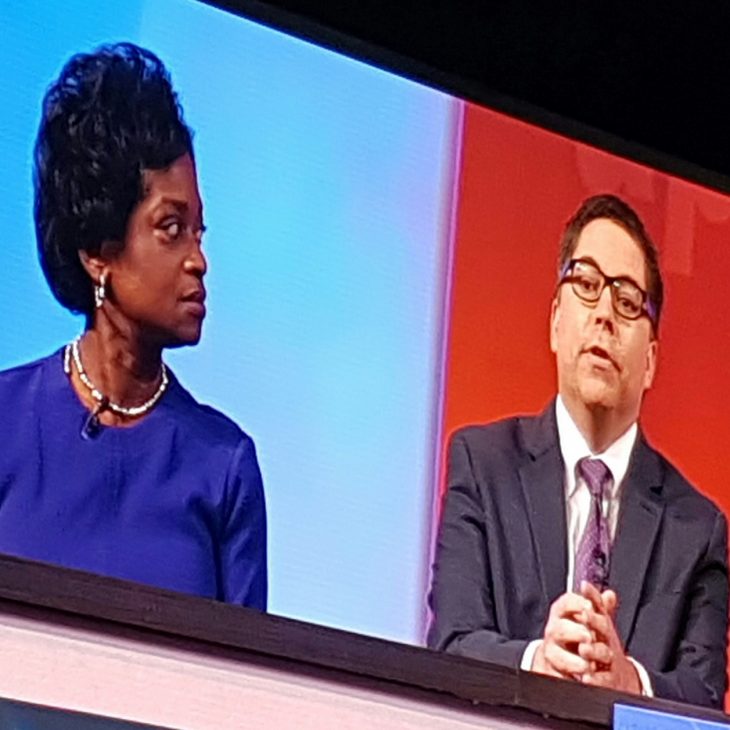
BOSTON – Even as the U.S. cable industry scrambles to eliminate the need for installing traditional set-top boxes in the home, it has stepped up its fierce fight against a regulatory proposal to open up the set top leasing business and stoke retail competition.
As we reported earlier, National Cable & Telecommunications Association (NCTA) president and CEO Michael Powell lambasted Federal Communications Commission (FCC) Chairman Tom Wheeler for promoting the proposed 'Unlock the Set-top' rulemaking. If it gains Commission approval later this year, the controversial proposed rule would mandate that cable operators give third party manufacturers and rivals like Google access to their precious set-top box data (and potentially the ability to insert middleware and sell ads on TV, something Google has long pursued).
In situations like this, "we find our property being confiscated and passed off to new competitors to give them a leg up, despite healthy and robust markets," Powell complained in his speech. "This is the case with the current proposal to unbundle valuable content and hand it to companies who do not have to pay for it, respect the intellectual property rights of it or abide by the same regulatory requirements to protect consumers.”
Powell also lit into the FCC for pushing other rules and proposed regulations during the Wheeler years as well, such as the strong net neutrality rules enacted last year and the agency's latest move to regulate rates for cable business services. "The FCC's mantra is competition, competition, competition," he said. "But from where we sit, it means one thing: regulation, regulation, regulation."
Ironically, the battle over unlocking the set-top is heating up in Washington as cable operators seek ways to use IP technology to distribute their programming to consumers on other video devices. In one highly publicized example, for instance, Time Warner Cable is now testing IP video delivery of its entire 300-plus channel lineup to New York City subscribers who use Roku media streaming boxes. On the company's latest earnings call last month, TWC Chairman & CEO Rob Marcus termed the early trial results "encouraging."
Other major U.S. MSOs, such as Comcast, Charter Communications (now the owners of Time Warner Cable) and Cox Communications, have been embracing IP video delivery as well as they attempt to use an apps-based approach to reach consumers on tablets, smartphones, game consoles, laptops and other video-enabled devices. And still other cable operators are working with TiVo to deliver traditional pay-TV offerings to TiVo boxes. In Canada, Rogers has promised to have an IPTV product in the market before the end of the year, Shaw is using Comcast’s X1 platform to build out FreeRangeTV and Cogeco has offered TiVo boxes for more than 18 months.
However, the real end game for the cable industry is to be rid of the box altogether so that everything rides in the cloud, delivered to smart TVs or smart TV-connected devices – but still within their own secure network.
At the INTX show, Powell wasn't the only one taking potshots at the FCC's set-top leasing proposal. The two Republican members of the Democratic-controlled Commission joined the one-time FCC chief (Powell) in the criticism, prompting applause at times from the partisan cable crowd.
Disputing their Democratic colleagues' claims that the "Unlock the Box" debate represents a healthy exchange of ideas, Republicans Ajit Pai and Michael O'Rielly derided that discussion as a sham with an outcome already pre-determined by Wheeler, who once led the NCTA.
"I believe it's already done — it's cooked," said O'Rielly, speaking next to his three fellow commissioners in a rare public gathering at the show. "At the end of the day, this proposal put forth by the Chairman is what's going to be voted on."
Pai concurred. "It's another case of sentence first, verdict later," he said. "I believe the decision has already been made, and the [Chairman's office] is not open to different points of view."
Going even further on the attack, O'Rielly declared that he "would take the current proposal and throw it in the garbage. That's where it belongs."
Taking issue with their Republican counterparts' barbs, Democratic Commissioners Jessica Rosenworcel and Mignon Clyburn sought to portray the set-top debate as a healthy discussion centered on consumer interests. "While I know there's a lot of emotion and people on various sides of the fence, the fact that we're having this conversation and not passing down any edicts speaks well of this process," Clyburn said (pictured on the big screen at INTX with O’Rielly).
But Pai and O'Rielly made strident appeals to the crowd that the set-top proposal — as well as other recent proposals aimed at broadband privacy and special access — are simply wastes of precious agency time. "There's so much the FCC can do and should be doing, but we spend so much time on things like the set-top issue and the special access issue," O'Rielly said, noting that he expects a Commission vote on the issue in October.


